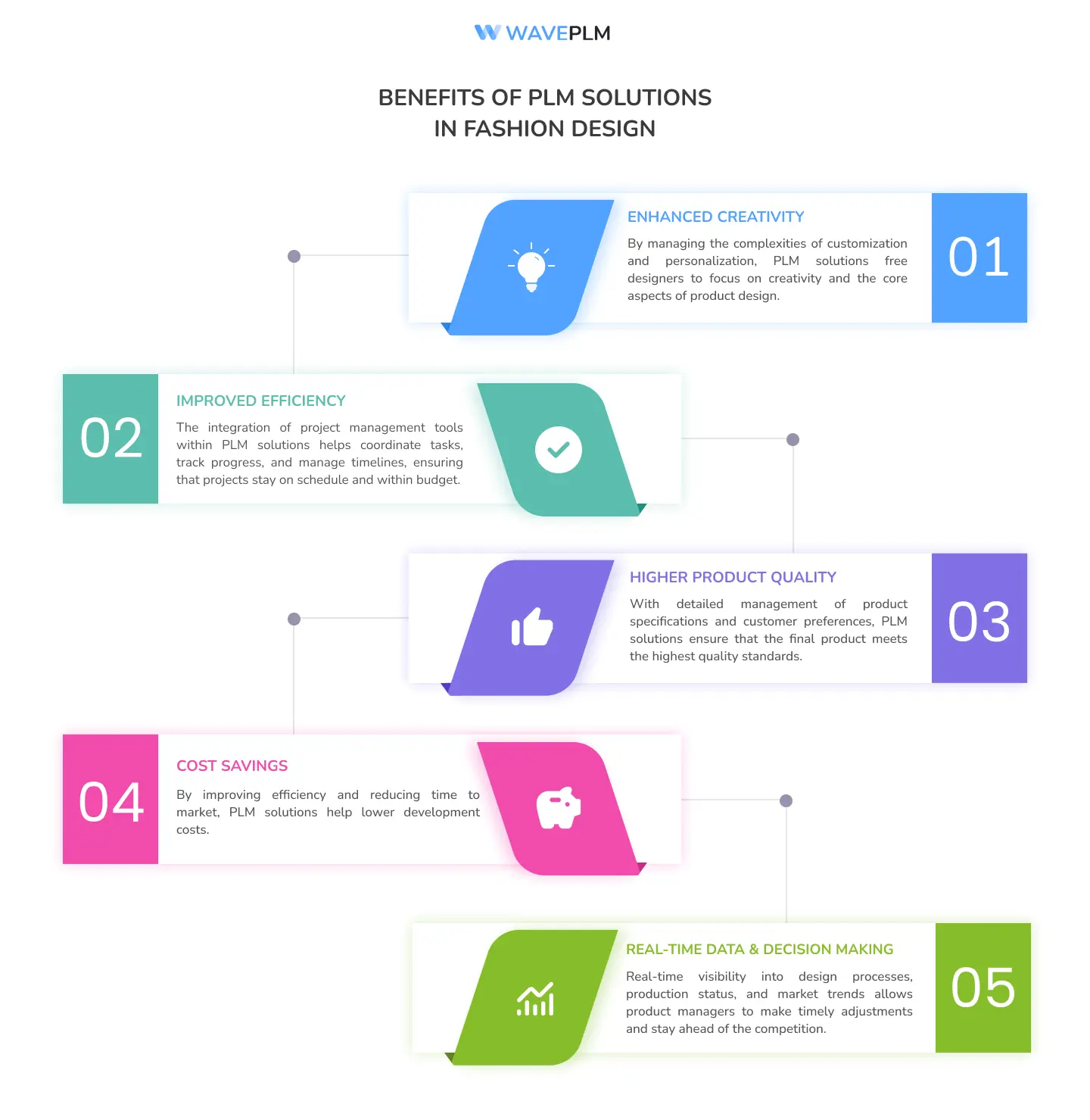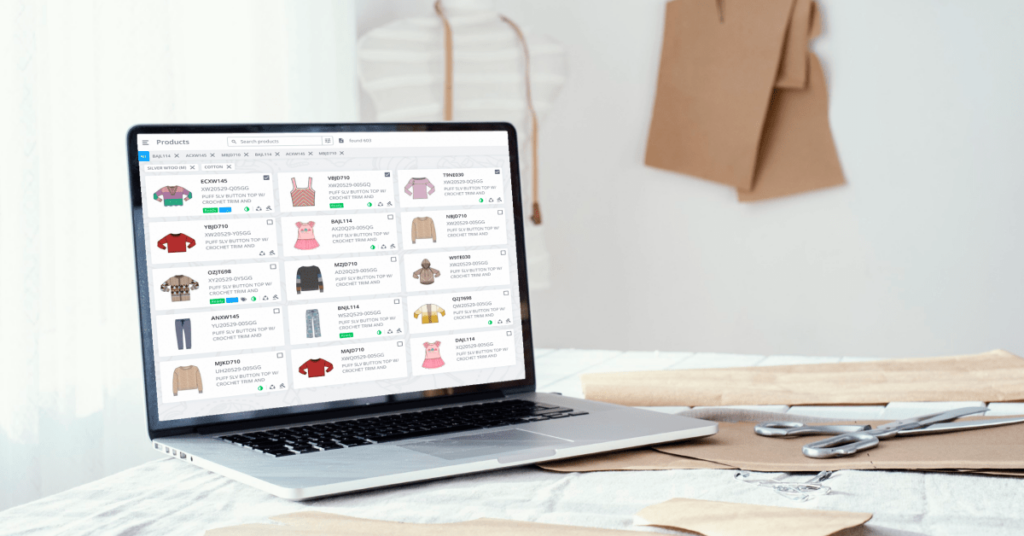
In the ever-evolving fashion industry, creativity and individuality are more important than ever. Today’s consumers demand unique, personalized products that reflect their personal style, rather than settling for generic, mass-produced items.
This shift has made customization and personalization essential components of modern fashion design. PLM software solutions are central to this change. They assist designers and brands in meeting new demands more effectively and efficiently.
Understanding PLM Solutions
PLM solutions are comprehensive systems designed to manage every stage of a product’s lifecycle, from initial concept to end-of-life. These solutions integrate people, data, processes, and business systems, providing a single source of truth for managing all product-related information. PLM software solutions in the fashion industry streamline product development processes, ensuring meticulous management and execution of each step.
The Role of Customization in Fashion Design
Customization allows consumers to tailor products to their specific preferences and needs. PLM solutions enable fashion brands to offer a wide range of customizable options, from fabric and color choices to specific design features. This capability not only enhances the customer experience but also helps brands differentiate themselves in a crowded marketplace.
For example, a customer might choose a specific type of fabric, select their preferred color, and even add personalized embroidery to a garment. PLM software facilitate this by providing designers with the tools to manage these custom options seamlessly. By integrating customization into their PLM systems, brands can ensure that every custom order is executed flawlessly, maintaining high standards of product quality and customer satisfaction.
The Importance of Personalization in Fashion Design
Personalization takes customization a step further by creating products uniquely tailored to an individual’s specifications. This can involve adjusting the fit of a garment based on a customer’s measurements or designing entirely unique pieces in real world. PLM solutions are crucial in this process, as they enable detailed tracking of customer preferences and specifications.
Using PLM solutions, designers can create digital profiles for customers, capturing their measurements, style preferences, and past purchases. This real-time data can then be used to create personalized fashion items that perfectly match the customer’s tastes and requirements. The ability to offer such personalized products helps fashion brands build stronger relationships with their customers, fostering loyalty and encouraging repeat business.
Benefits of PLM Solutions in Fashion Design
- Enhanced Creativity
PLM solutions provide designers with a platform to experiment and innovate. By managing the complexities of customization and personalization, these solutions free designers to focus on creativity and the core aspects of product design. With a robust PLM system in place, designers can also easily access a single source of truth, ensuring that all team members are working with the most up-to-date information.
- Improved Efficiency
Streamlining the design and production process through PLM solutions reduces time to market. Designers can quickly turn ideas into reality, keeping pace with fast-moving fashion trends. The integration of project management tools within PLM solutions also helps coordinate tasks, track progress, and manage timelines, ensuring that projects stay on schedule and within budget.
- Higher Product Quality
With detailed management of product specifications and customer preferences, PLM solutions ensure that the final product meets the highest quality standards. Quality management features within PLM systems enable rigorous testing and validation processes, identifying potential issues early and mitigating risks before products reach the market. This focus on quality products helps maintain the brand’s reputation and reduces the likelihood of costly product recalls.
- Cost Savings
Implementing PLM solutions can lead to significant cost savings throughout the product development processes. By improving efficiency and reducing time to market, PLM solutions help lower development costs. Additionally, the ability to accurately track and manage product requirements and materials helps minimize waste and optimize resource usage. These cost savings can then be passed on to customers or reinvested into further innovation.
- Real-Time Data and Decision Making
PLM solutions provide access to real-time data, enabling informed decision-making throughout the product development lifecycle. Real-time visibility into design processes, production status, and market trends allows product managers to make timely adjustments and stay ahead of the competition. This dynamic approach to product management also ensures that fashion brands can quickly respond to changing consumer demands and industry trends.

Integration with Business Processes
PLM solutions are not just confined to design and production; they integrate seamlessly with broader business processes. Fashion brands can connect PLM systems with supply chain, inventory, and sales platforms to streamline product development and delivery processes. This integration also enhances visibility across the entire value chain, ensuring that all stakeholders are aligned and working towards common goals.
Collaboration and Development Teams
Effective collaboration is essential for successful product development. PLM solutions also facilitate collaboration among development teams, designers, product managers, and other stakeholders by providing a centralized platform for communication and information sharing. This collaborative environment helps ensure that everyone is on the same page, reducing misunderstandings and improving overall efficiency.
Development teams can use PLM solutions to share ideas, provide feedback, and track progress in real-time. This level of collaboration fosters innovation and ensures that all team members contribute to the project’s success. Additionally, PLM solutions support remote and distributed teams, making it easier to work with global partners and suppliers.
The Future of Fashion Design with PLM Solutions
The adoption of PLM solutions is transforming the fashion industry, enabling brands to meet the growing demand for customized and personalized products. As technology continues to advance, the capabilities of PLM solutions will only expand, offering even more sophisticated tools for product design, quality management, and project management.
In the future, we can expect PLM solutions to incorporate advanced technologies such as artificial intelligence and machine learning. These technologies will enhance predictive analytics, enabling brands to anticipate consumer trends and make data-driven decisions. Additionally, augmented reality and virtual reality integration will provide new ways for customers to visualize and customize their products, further enhancing the shopping experience.

Conclusion
Incorporating PLM solutions into fashion design is no longer a luxury but a necessity. As consumer demand for individualized products continues to grow, brands that embrace customization and personalization will thrive. PLM solutions not only support these capabilities but also enhance creativity, efficiency, and product quality. By leveraging the power of PLM, fashion brands can stay ahead of the competition and also deliver products that truly resonate with their customers.
Embrace the future of fashion design with PLM solutions and unlock the full potential of customization and personalization. Whether it’s offering custom fabric choices or creating entirely unique garments, PLM solutions provide the tools and capabilities needed to meet the demands of today’s discerning consumers. With the right PLM solution, fashion brands can turn creative ideas into reality, ensuring that every product meets the highest standards of quality and customer satisfaction.





Leave a Reply